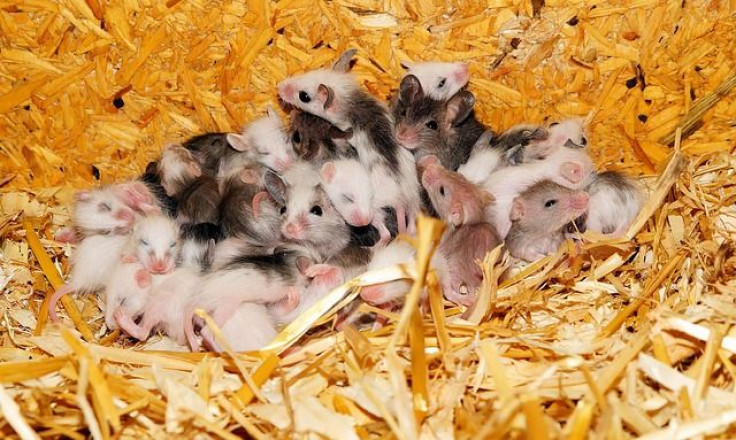Babies Of The Future: Altered Embryos May Be Used for Potential Infertility Treatment

Babies in the future might not be born from embryos made up of eggs, according to a new study published Tuesday. For the first time, scientists have bred offspring from non-egg cells. Lead scientist Dr. Tony Perry and his team at the University of Bath were able to successfully breed a litter of healthy mice while bypassing egg fertilization, according to a recent press release.
“Our work challenges the dogma, held since early embryologists first observed mammalian eggs around 1827 and observed fertilization 50 years later, that only an egg cell fertilized with a sperm cell can result in a live mammalian birth,” Dr. Perry said in a statement.
Although eggs can be tricked into developing as if they were fertilized, the resulting embryos, called parthenogenotes, normally die a few days later because “key developmental processes requiring input from sperm don’t happen,”
The team used mouse eggs and, using their own method, injected chemicals to trick them into developing as they would if they were already fertilized. This method allowed the parthenogenotes, which behave similarly to skin cells and other cells within the body, to develop as if they were fertilized.
When scientists injected sperm into these embryos, they developed normally instead of dying. After being transferred into female mice, the mouse pups were born healthy.
At its peak, the success rate of the study was 24 percent with a total of 30 pups. Some of the mice born out of this study went on to have their own pups, and some of them had more offspring as well, reported the Guardian.
This study brings up ethical questions regarding recent suggestions of using parthenogonotes as a source of embryonic stem cells. With progress, scientists in the future may be able to breed animals using sperm and non-eggs.
According to the University statement, although this is still only an idea, it could have potential future applications in human fertility treatment and for breeding endangered species.
Source: Suzuki T, Asami M, Hoffmann M, et al. Mice produced by mitotic reprogramming of sperm injected into haploid parthenogenotes. Nature Communications. 2016
Read More:
Skin Cells Turned Into Heart And Brain Cells Could Lead To Organ Regeneration: Read Here
Pain Relief Breakthrough: Experimental Stem Cell Procedure Provides Mice With Long-Lasting Nerve Pain Relief: Read Here



























